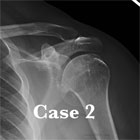


be active – read some tips about getting more exercise.eat a low-fat, balanced diet – including plenty of fresh fruit and vegetables get tips on eating more healthily.cut your salt intake to less than 6g (0.2oz) a day, which is about a teaspoonful – find out how you can reduce the amount of salt in your diet.Some of these will lower your blood pressure in a matter of weeks, while others may take longer. There are some changes you could make to your lifestyle to reduce high blood pressure. if your blood pressure is consistently above 160/100mmHg – you'll be offered medicine to lower your blood pressure, in addition to lifestyle changes.if your blood pressure is consistently above 140/90mmHg (or 135/85mmHg at home) and your risk of other problems is high – you'll be offered medicine to lower your blood pressure, in addition to lifestyle changes.if your blood pressure is consistently above 140/90mmHg (or 135/85mmHg at home), but your risk of other problems is low – you'll be advised to make some changes to your lifestyle.Your doctor will carry out some blood and urine tests, and ask questions about your health to determine your risk of other problems: Whether medicine is also recommended depends on your blood pressure reading and your risk of developing problems such as heart attacks or strokes. When treatment is recommendedĮveryone with high blood pressure is advised to make healthy lifestyle changes. This patient decision aid (PDF, 132kb) can also help you to understand your treatment options.

Your GP can advise you about changes you can make to your lifestyle and discuss whether they think you'd benefit from medicine. Simple lifestyle changes can help reduce high blood pressure, although some people may need to take medicine as well.


 0 kommentar(er)
0 kommentar(er)
